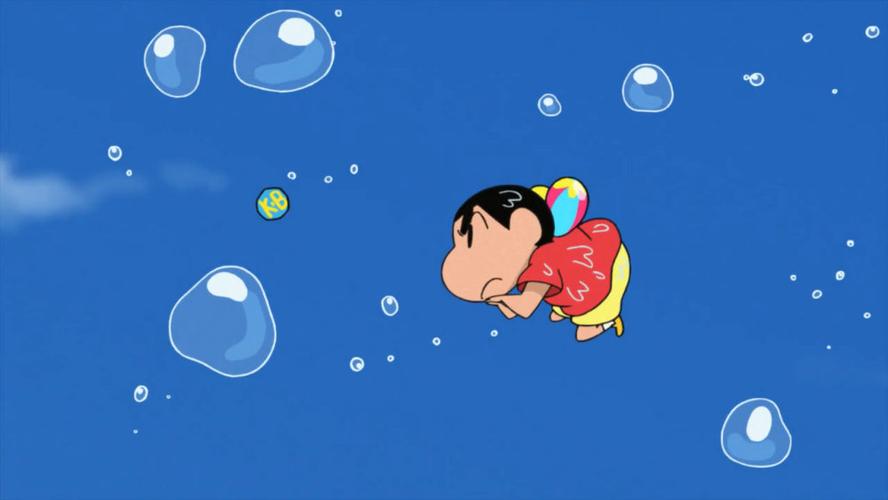admin管理员组文章数量:1794759

Java 8的新特性(入门)
Java8新特性
一,简介Lambda 表达式
函数式接口
方法引用与构造器引用
Stream API
接口中的默认方法与静态方法
新时间日期API
其他新特性
新特性简介:
⚫ 速度更快
⚫ 代码更少(增加了新的语法 Lambda 表达式)
⚫ 强大的 Stream API
⚫ 便于并行
⚫ 最大化减少空指针异常 Optional
其中最为核心的为 Lambda 表达式与Stream API
二. Lambda表达式 1.简介为什么使用Lambda 表达式:
Lambda 是一个匿名函数,我们可以把 Lambda表达式理解为是一段可以传递的代码(将代码像数据一样进行传递)。可以写出更简洁、更灵活的代码。作为一种更紧凑的代码风格,使Java的语言表达能力得到了提升。
2.从匿名类到 Lambda 的转换 3.语法Lambda 表达式在Java 语言中引入了一个新的语法元素和操作符。这个操作符为 “->” , 该操作符被称为 Lambda 操作符或剪头操作符。它将 Lambda 分为两个部分:
**左侧:**指定了 Lambda 表达式需要的所有参数
**右侧:**指定了 Lambda 体,即 Lambda 表达式要执行的功能
语法格式一:无参,无返回值,Lambda体只需一条语句
语法格式二:Lambda需要一个参数
语法格式三:Lambda只需要一个参数时,参数的小括号可以省略
语法格式四:Lambda需要两个参数,并且有返回值
Comparator<Integer> comparator = (x , y)->{ System.out.println("包含多条语句应有大括号"); System.out.println("比较x,y的大小"); return Integerpare(x,y); };语法格式五:当Lambda体只有一条语句时,return与大括号可以省略
Comparator<Integer> comparator = (x,y)->Integerpare(x,y);语法格式六:Lambda表达式的参数列表的数据类型可以省略不写,因为JVM编译器通过上下文推断出,数据类型,即“数据推断”
类型推断
上述 Lambda 表达式中的参数类型都是由编译器推断得出的。Lambda 表达式中无需指定类型,程序依然可以编译,这是因为 javac 根据程序的上下文,在后台推断出了参数的类型。Lambda 表达式的类型依赖于上下文环境,是由编译器推断出来的。这就是所谓的 “类型推断“
三.函数式接口 1.定义
⚫ 只包含一个抽象方法的接口,称为函数式接口。
⚫ 你可以通过 Lambda 表达式来创建该接口的对象。(若 Lambda
表达式抛出一个受检异常,那么该异常需要在目标接口的抽象方
法上进行声明)。
⚫ 我们可以在任意函数式接口上使用 @FunctionalInterface 注解,
这样做可以检查它是否是一个函数式接口,同时 javadoc 也会包
含一条声明,说明这个接口是一个函数式接口。
2.自定义函数式接口 3.作为参数传递Lambda 表达式作为参数传递 Lambda 表达式:为了将 Lambda 表达式作为参数传递,接 收Lambda 表达式的参数类型必须是与该 Lambda 表达式兼容的函数式接口的类型。
*练习: MyFunction package Test; @FunctionalInterface public interface MyFunction { public String getValue(String str); } Test2 package Test; import org.testng.annotations.Test; public class Test2 { @Test public void test2(){ //先去掉首尾空格 String strtrim = strHandler("\\t\\t\\t Java8",(str) -> str.trim()); System.out.println(strtrim); //截取字符 String newstr = strHandler("abcdefghijklmn",str -> str.substring(2,5)); System.out.println(newstr); } //用于处理字符串的方法 public String strHandler(String str,MyFunction myFunction){ return myFunction.getValue(str); } }[外链图片转存失败,源站可能有防盗链机制,建议将图片保存下来直接上传(img-4atDP0r0-1649521532194)(gitee/yan-chaochao/typora-library/raw/master/typora-library/image-20220406193939471.png)]
四.Java四大内置的函数接口| Consumer< T >消费型接口 | T | void | 对类型为T的对象应用操作:void accept(T t) |
| Supplier< T >供给型接口 | 无 | T | 返回类型为T的对象:T get() |
| Function<T, R>函数型接口 | T | R | 对类型为T的对象应用操作,并返回结果为R类型的对象:R apply(T t) |
| Predicate 断言型接口 | T | boolean | 确定类型为T的对象是否满足某约束,并返回boolean值:boolean test(T t) |
若 Lambda 表达式体中的内容已有方法实现,则我们可以使用“方法引用”
语法格式:
- 对象 :: 实例方法
- 类 :: 静态方法
- 类 :: 实例方法
**注意:**Lambda 表达实体中调用方法的参数列表、返回类型必须和函数式接口中抽象方法保持一致
类::静态方法 package study; import org.testng.annotations.Test; import java.io.PrintStream; import java.util.Comparator; import java.util.function.Consumer; public class Test3 { @Test public void test02(){ Comparator<Integer> com1 = (x, y) -> Integerpare(x, y); System.out.println(com1pare(1, 2)); Comparator<Integer> com2 = Integer::compare; System.out.println(com2pare(2, 1)); } } 类::实例方法 package study; import org.testng.annotations.Test; import java.io.PrintStream; import java.util.Comparator; import java.util.function.BiPredicate; import java.util.function.Consumer; public class Test3 { @Test public void test03(){ BiPredicate<String, String> bp1 = (x, y) -> x.equals(y); System.out.println(bp1.test("a","b")); BiPredicate<String, String> bp2 = String::equals; System.out.println(bp2.test("c","c")); } }[外链图片转存失败,源站可能有防盗链机制,建议将图片保存下来直接上传(img-9yibnowR-1649521532197)(C:\\Users\\lenovo\\AppData\\Roaming\\Typora\\typora-user-images\\image-20220406221640623.png)]
**条件:**Lambda 参数列表中的第一个参数是方法的调用者,第二个参数是方法的参数时,才能使用 ClassName :: Method
2.构造器引用格式:
ClassName :: new
@Test public void test04(){ Supplier<List> sup1 = () -> new ArrayList(); //构造器引用方式 Supplier<List> sup2 = ArrayList::new; }**注意:**需要调用的构造器的参数列表要与函数时接口中抽象方法的参数列表保持一致
3.数组引用 @Test public void test05(){ Function<Integer,String[]> fun1 = (x)->new String[x]; String[] str1 = fun1.apply(10); System.out.println(str1.length); Function<Integer,String[]> fun2 = String[]::new; String[] str2 = fun2.apply(20); System.out.println(str2.length); } 六.Stream API 1.了解Stream (1)简介Java8中有两大最为重要的改变。第一个是 Lambda 表达式;另外一
个则是 Stream API(java.util.stream.*)。
Stream 是 Java8 中处理集合的关键抽象概念,它可以指定你希望对
集合进行的操作,可以执行非常复杂的查找、过滤和映射数据等操作。
使用Stream API 对集合数据进行操作,就类似于使用 SQL 执行的数
据库查询。也可以使用 Stream API 来并行执行操作。简而言之,
Stream API 提供了一种高效且易于使用的处理数据的方式。
(2)什么是Stream流(Stream) 到底是什么呢?
是数据渠道,用于操作数据源(集合、数组等)所生成的元素序列。
“集合讲的是数据,流讲的是计算!”
注意:
①Stream 自己不会存储元素。
②Stream 不会改变源对象。相反,他们会返回一个持有结果的新Stream。
③Stream 操作是延迟执行的。这意味着他们会等到需要结果的时候才执行。
2.Stream的操作三个步骤
⚫ 创建 Stream
一个数据源(如:集合、数组),获取一个流
⚫ 中间操作
一个中间操作链,对数据源的数据进行处理
⚫ 终止操作(终端操作)
一个终止操作,执行中间操作链,并产生结果
3.创建Stream
Java8 中的 Collection 接口被扩展,提供了两个获取流的方法:
⚫ default Stream stream() : 返回一个顺序流
⚫ default Stream parallelStream() : 返回一个并行流
(1)由数组创建流Java8 中的 Arrays 的静态方法 stream() 可以获取数组流:
⚫ static Stream stream(T[] array): 返回一个流重载形式,能够处理对应基本类型的数组:
⚫ public static IntStream stream(int[] array)
⚫ public static LongStream stream(long[] array)
⚫ public static DoubleStream stream(double[] array)
(2)由值创建流可以使用静态方法 Stream.of(), 通过显示值创建一个流。它可以接收任意数量的参数。
⚫ public static Stream of(T… values) : 返回一个流
(3)由函数创建流:创建无限流可以使用静态方法 Stream.iterate() 和Stream.generate(), 创建无限流。
⚫ 迭代
public static Stream iterate(final T seed, final
UnaryOperator f)
⚫ 生成
public static Stream generate(Supplier s) :
代码举例:
@Test public void test06(){ //1.可以通过Collection系列集合提供的stream()或parallelStream() //集合流: // - Collection.stream() 穿行流 // - Collection.parallelStream() 并行流 List<String> list = new ArrayList<>(); Stream<String> stream1 = list.stream(); //2.通过Arrays中的静态方法stream()获取数组连接 //Arrays.stream(array) String[] strings = new String[10]; Stream<String> stream2 = Arrays.stream(strings); //3.通过Stream 类中静态方法of() //Stream.of(...) Stream<Integer> stream3 = Stream.of(1, 2, 3); //4.创建无限流 //迭代 Stream<Integer> stream4 = Stream.iterate(0, (i) -> i+2); stream4.limit(10).forEach(System.out::println); //生成 Stream.generate(() -> Math.random()) .limit(5) .forEach(System.out::println); }4.Stream中间操作
多个中间操作可以连接起来形成一个流水线,除非流水线上触发终止操作,否则中间操作不会执行任何的处理!而在终止操作时一次性全部处理,称为“惰性求值”。
(1)筛选与切片-
内部迭代:迭代操作由 Stream API 完成
-
外部迭代:我们通过迭代器完成
- map:接收 Lambda ,将元素转换为其他形式或提取信;接受一个函数作为参数,该函数会被应用到每个元素上,并将其映射成一个新的元素
- flatMap:接收一个函数作为参数,将流中每一个值都换成另一个流,然后把所有流重新连接成一个流
结果:
a a a b b b c c c =============================================== Default Suite Total tests run: 1, Passes: 1, Failures: 0, Skips: 0 =============================================== (3)排序| sorted() | 产生一个新流,其中按自然顺序排序 |
| sorted(Comparator comp) | 产生一个新流,其中按比较器顺序排序 |
**sorted()**自然排序
@Test public void test10(){ List<String> list = Arrays.asList("c", "a", "b"); list.stream() .sorted() .forEach(System.out::println); }结果:
a b c =============================================== Default Suite Total tests run: 1, Passes: 1, Failures: 0, Skips: 0 =============================================== 进程已结束,退出代码0sorted(Comparator comp) 比较器顺序排序
@Test public void test05(){ emps.stream() .sorted((e1, e2) -> { //compara() if (e1.getAge().equals(e2.getAge())){ return e1.getName()pareTo(e2.getName()); } else { return e1.getAge()pareTo(e2.getAge()); } }) .forEach(System.out::println); }5.Stream的终止操作
终端操作会从流的流水线生成结果。其结果可以是任何不是流的值,例如:List、Integer,甚至是 void 。
(1)查找与匹配| allMatch(Predicate p) | 检查是否匹配所有元素 |
| anyMatch(Predicate p) | 检查是否至少匹配一个元素 |
| noneMatch(Predicate p) | 检查是否没有匹配所有元素 |
| findFirst() | 返回第一个元素 |
| findAny() | 返回当前流中的任意元素 |
[外链图片转存失败,源站可能有防盗链机制,建议将图片保存下来直接上传(img-zpJIIb7C-1649521532199)(gitee/yan-chaochao/typora-library/raw/master/typora-library/image-20220407154558408.png)]
-
allMatch:检查是否匹配所有元素
-
anyMatch:检查是否至少匹配一个元素
-
noneMatch:检查是否没有匹配所有元素
-
findFirst:返回第一个元素
-
findAny:返回当前流中的任意元素
-
count:返回流中元素的总个数
-
max:返回流中最大值
-
min:返回流中最小值
备注:map 和 reduce 的连接通常称为map-reduce 模式,因 Google 用它来进行网络搜索而出名。
[外链图片转存失败,源站可能有防盗链机制,建议将图片保存下来直接上传(img-ZE8zIeHc-1649521532200)(gitee/yan-chaochao/typora-library/raw/master/typora-library/image-20220407180925241.png)]
@Test public void test01(){ List<Integer> list = Arrays.asList(1, 2, 3, 4, 5, 6, 7, 8, 9); Integer integer = list.stream() .reduce(0, (x, y) -> x + y); System.out.println(integer); }结果:
45 =============================================== Default Suite Total tests run: 1, Passes: 1, Failures: 0, Skips: 0 =============================================== 进程已结束,退出代码0(3)收集
| collect(Collector c) | 将流转换为其他形式。接收一个 Collector接口的实现,用于给Stream中元素做汇总的方法 |
Collector 接口中方法的实现决定了如何对流执行收集操作(如收集到 List、Set、Map)。但是 Collectors 实用类提供了很多静态方法,可以方便地创建常见收集器实例,具体方法与实例如下表:
[外链图片转存失败,源站可能有防盗链机制,建议将图片保存下来直接上传(img-cvM2TyhW-1649521532200)(C:\\Users\\lenovo\\AppData\\Roaming\\Typora\\typora-user-images\\image-20220407205347159.png)]
代码举例:
1.收集到List public class Test5 { List<Employee> emps = Arrays.asList( new Employee(101, "Z3", 19, 9999.99), new Employee(102, "L4", 20, 7777.77), new Employee(103, "W5", 35, 6666.66), new Employee(104, "Tom", 44, 1111.11), new Employee(105, "Jerry", 60, 4444.44) ); @Test public void test01(){ List<String> list = emps.stream() .map(Employee::getName) .collect(Collectors.toList()); list.forEach(System.out::println); } 2.收集到set public class Test5 { List<Employee> emps = Arrays.asList( new Employee(101, "张三", 19, 9999.99), new Employee(102, "李四", 20, 7777.77), new Employee(103, "王五", 35, 6666.66), new Employee(104, "Jerry", 44, 1111.11), new Employee(105, "Jerry", 60, 4444.44) ); @Test public void test02(){ Set<String> set = emps.stream() .map(Employee::getName) .collect(Collectors.toSet()); set.forEach(System.out::println); } } 3.放入HashSet public class Test5 { List<Employee> emps = Arrays.asList( new Employee(101, "张三", 19, 9999.99), new Employee(102, "李四", 20, 7777.77), new Employee(103, "王五", 35, 6666.66), new Employee(104, "Jerry", 44, 1111.11), new Employee(105, "Jerry", 60, 4444.44) ); @Test public void tests03(){ //放入LinkedHashSet LinkedHashSet<String> linkedHashSet = emps.stream() .map(Employee::getName) .collect(Collectors.toCollection(LinkedHashSet::new)); linkedHashSet.forEach(System.out::println); } }
[外链图片转存失败,源站可能有防盗链机制,建议将图片保存下来直接上传(img-DLUvx5bm-1649521532201)(gitee/yan-chaochao/typora-library/raw/master/typora-library/image-20220408202133459.png)]
4.总数 public class Test5 { List<Employee> emps = Arrays.asList( new Employee(101, "张三", 19, 9999.99), new Employee(102, "李四", 20, 7777.77), new Employee(103, "王五", 35, 6666.66), new Employee(104, "Tom", 44, 1111.11), new Employee(105, "Jerry", 60, 4444.44) ); @Test public void tests03(){ //总数 Long count = emps.stream() .collect(Collectors.counting()); System.out.println(count); } } 5.平均值 List<Employee> emps = Arrays.asList( new Employee(101, "张三", 19, 10000), new Employee(102, "李四", 20,20000), new Employee(103, "王五", 35, 30000), new Employee(104, "Tom", 44, 40000), new Employee(105, "Jerry", 60, 50000) ); @Test public void test(){ //平均值 Double avg = emps.stream() .collect(Collectors.averagingDouble(Employee::getSalary)); System.out.println(avg); } }[外链图片转存失败,源站可能有防盗链机制,建议将图片保存下来直接上传(img-lhLcc6zq-1649521532202)(gitee/yan-chaochao/typora-library/raw/master/typora-library/image-20220408202629418.png)]
6.总和 public class Test5 { List<Employee> emps = Arrays.asList( new Employee(101, "张三", 19, 10000), new Employee(102, "李四", 20,20000), new Employee(103, "王五", 35, 30000), new Employee(104, "Tom", 44, 40000), new Employee(105, "Jerry", 60, 50000) ); @Test public void test(){ //总和 Double sum = emps.stream() .collect(Collectors.summingDouble(Employee::getSalary)); System.out.println(sum); } } 7.最大值 public class Test5 { List<Employee> emps = Arrays.asList( new Employee(101, "张三", 19, 10000), new Employee(102, "李四", 20,20000), new Employee(103, "王五", 35, 30000), new Employee(104, "Tom", 44, 40000), new Employee(105, "Jerry", 60, 50000) ); @Test public void test(){ //最大值 Optional<Employee> max = emps.stream() .collect(Collectors.maxBy((e1, e2) -> Doublepare(e1.getSalary(), e2.getSalary()))); System.out.println(max.get()); } } 8.最小值 public class Test5 { List<Employee> emps = Arrays.asList( new Employee(101, "张三", 19, 10000), new Employee(102, "李四", 20,20000), new Employee(103, "王五", 35, 30000), new Employee(104, "Tom", 44, 40000), new Employee(105, "Jerry", 60, 50000) ); @Test public void test(){ //最小值 Optional<Double> min = emps.stream() .map(Employee::getSalary) .collect(Collectors.minBy(Double::compare)); System.out.println(min.get()); } }[外链图片转存失败,源站可能有防盗链机制,建议将图片保存下来直接上传(img-AcESZB3s-1649521532203)(gitee/yan-chaochao/typora-library/raw/master/typora-library/image-20220408203048076.png)]
9.分组 public class Test5 { List<Employee> emps = Arrays.asList( new Employee(101, "张三", 19, 10000), new Employee(102, "李四", 20,20000), new Employee(103, "王五", 35, 30000), new Employee(104, "Tom", 44, 40000), new Employee(105, "Jerry", 60, 50000) ); @Test public void tests(){ //分组 Map<Integer, List<Employee>> map = emps.stream() .collect(Collectors.groupingBy(Employee::getId)); //输出Map System.out.println(map); System.out.println("------------------------------------------------------"); //遍历Map map.values().forEach(System.out::println); } } 10.多级分组 public class Test5 { List<Employee> emps = Arrays.asList( new Employee(101, "张三", 19, 10000), new Employee(102, "李四", 20,20000), new Employee(103, "王五", 35, 30000), new Employee(104, "Tom", 44, 40000), new Employee(105, "Jerry", 60, 50000) ); @Test public void tests(){ //多级分组 Map<Integer, Map<String, List<Employee>>> mapMap = emps.stream() .collect(Collectors.groupingBy(Employee::getId, Collectors.groupingBy((e) -> { if (e.getAge() > 35) { return "开除"; } else { return "继续加班"; } }))); System.out.println(mapMap); //遍历Map mapMap.values().forEach(System.out::println); } } 11.分层 true/false public class Test5 { List<Employee> emps = Arrays.asList( new Employee(101, "张三", 19, 10000), new Employee(102, "李四", 20,20000), new Employee(103, "王五", 35, 30000), new Employee(104, "Tom", 44, 40000), new Employee(105, "Jerry", 60, 50000) ); @Test public void tests(){ //分区 Map<Boolean, List<Employee>> listMap = emps.stream() .collect(Collectors.partitioningBy((e) -> e.getSalary() > 4321)); System.out.println(listMap); } } 结果: {false=[], true=[Employee [id=101, name=张三, age=19, salary=10000.0], Employee [id=102, name=李四, age=20, salary=20000.0], Employee [id=103, name=王五, age=35, salary=30000.0], Employee [id=104, name=Tom, age=44, salary=40000.0], Employee [id=105, name=Jerry, age=60, salary=50000.0]]} 12.总结 public class Test5 { List<Employee> emps = Arrays.asList( new Employee(101, "张三", 19, 10000), new Employee(102, "李四", 20,20000), new Employee(103, "王五", 35, 30000), new Employee(104, "Tom", 44, 40000), new Employee(105, "Jerry", 60, 50000) ); @Test public void test05(){ //总结 DoubleSummaryStatistics dss = emps.stream() .collect(Collectors.summarizingDouble(Employee::getSalary)); System.out.println(dss.getMax()); System.out.println(dss.getMin()); System.out.println(dss.getSum()); System.out.println(dss.getCount()); System.out.println(dss.getAverage()); } }[外链图片转存失败,源站可能有防盗链机制,建议将图片保存下来直接上传(img-cAzuAC2C-1649521532204)(gitee/yan-chaochao/typora-library/raw/master/typora-library/image-20220408205231325.png)]
13.连接 public class Test5 { List<Employee> emps = Arrays.asList( new Employee(101, "张三", 19, 10000), new Employee(102, "李四", 20,20000), new Employee(103, "王五", 35, 30000), new Employee(104, "Tom", 44, 40000), new Employee(105, "Jerry", 60, 50000) ); @Test public void test05(){ //连接 String str = emps.stream() .map(Employee::getName) .collect(Collectors.joining("-")); //可传入分隔符 System.out.println(str); } }[外链图片转存失败,源站可能有防盗链机制,建议将图片保存下来直接上传(img-nQqEQAUs-1649521532204)(gitee/yan-chaochao/typora-library/raw/master/typora-library/image-20220408205329113.png)]
6.案例(1)给定一个数字列表,如何返回一个由每个数的平方构成的列表呢?(如:给定【1,2,3,4,5】,返回【1,4,9,16,25】)
@Test public void test01(){ List<Integer> list = Arrays.asList(1, 2, 3, 4, 5); list.stream() .map((x) -> x * x) .forEach(System.out::println); }(2)怎样使用 map 和 reduce 数一数流中有多少个 Employee 呢?
public class Test5 { List<Employee> emps = Arrays.asList( new Employee(101, "张三", 19, 10000), new Employee(102, "李四", 20,20000), new Employee(103, "王五", 35, 30000), new Employee(104, "Tom", 44, 40000), new Employee(105, "Jerry", 60, 50000) ); @Test public void test02(){ Optional<Integer> result = emps.stream() .map((e) -> 1) .reduce(Integer::sum); System.out.println(result.get()); } } 七.并行流与串行流 1.简介并行流就是把一个内容分成多个数据块,并用不同的线程分别处理每个数据块的流。
Java 8 中将并行进行了优化,我们可以很容易的对数据进行并行操作。Stream API 可以声明性地通过 parallel() 与sequential() 在并行流与顺序流之间进行切换。
2.了解 Fork/Join 框架**Fork/Join 框架:**就是在必要的情况下,将一个大任务,进行拆分(fork)成若干个小任务(拆到不可再拆时),再将一个个的小任务运算的结果进行 join 汇总.。
3.Fork/Join 框架与传统线程池的区别采用 “工作窃取”模式(work-stealing):当执行新的任务时它可以将其拆分分成更小的任务执行,并将小任务加到线程队列中,然后再从一个随机线程的队列中偷一个并把它放在自己的队列中。相对于一般的线程池实现,fork/join框架的优势体现在对其中包含的任务的处理方式上.在一般的线程池中,如果一个线程正在执行的任务由于某些原因无法继续运行,那么该线程会处于等待状态.而在fork/join框架实现中,如果某个子问题由于等待另外一个子问题的完成而无法继续运行.那么处理该子问题的线程会主动寻找其他尚未运行的子问题来执行.这种方式减少了线程的等待时间,提高了性能.
4.Fork/Join的实现在实现前要继承一个类
RecursiveTask(有返回值)或者
RecursiveAction(无返回值)Recursive(英文翻译:递归)
public class ForkJoinCalculate extends RecursiveTask<Long> { private static final long serialVersionUID = 1234567890L; private long start; private long end; private static final long THRESHPLD = 10000; public ForkJoinCalculate(long start, long end) { this.start = start; this.end = end; } @Override protected Long compute() { long length = end - start; if (length <= THRESHPLD) { long sum = 0; for (long i = start; i <= end; i++) { sum += i; } } else { long middle = (start + end) / 2; ForkJoinCalculate left = new ForkJoinCalculate(start, end); left.fork(); //拆分子任务 压入线程队列 ForkJoinCalculate right = new ForkJoinCalculate(middle + 1, end); right.fork(); return left.join() + right.join(); } return null; } } public class TestForkJoin { /** * ForkJoin 框架 */ @Test public void test01(){ Instant start = Instant.now(); ForkJoinPool pool = new ForkJoinPool(); ForkJoinCalculate task = new ForkJoinCalculate(0, 100000000L); Long sum = pool.invoke(task); System.out.println(sum); Instant end = Instant.now(); System.out.println(Duration.between(start, end).getNano()); } /** * 普通 for循环 */ @Test public void test02(){ Instant start = Instant.now(); Long sum = 0L; for (long i = 0; i < 100000000L; i++) { sum += i; } Instant end = Instant.now(); System.out.println(Duration.between(start, end).getNano()); } }Java8并行流/串行流
@Test public void test03(){ //串行流(单线程):切换为并行流 parallel() //并行流:切换为串行流 sequential() LongStream.rangeClosed(0, 100000000L) .parallel() //底层:ForkJoin .reduce(0, Long::sum); }八.Optional 1.定义:
Optional 类 (java.util.Optional) 是一个容器类,代表一个值存在或不存在,原来用 null 表示一个值不存在,现在用 Optional 可以更好的表达这个概念,并且可以避免空指针异常
2.常用方法:Optional.of(T t):创建一个 Optional 实例
Optional.empty(T t):创建一个空的 Optional 实例
Optional.ofNullable(T t):若 t 不为 null,创建 Optional 实例,否则空实例
isPresent():判断是否包含某值
orElse(T t):如果调用对象包含值,返回该值,否则返回 t
orElseGet(Supplier s):如果调用对象包含值,返回该值,否则返回 s 获取的值
map(Function f):如果有值对其处理,并返回处理后的 Optional,否则返回 Optional.empty()
flatmap(Function mapper):与 map 相似,要求返回值必须是 Optional
创建一个 Optional 实例
(此代码中未传递任何值)
在构造过程中Optional.of(null);会发生空指针异常
@Test public void test01(){ Optional<Employee> op = Optional.of(new Employee()); Employee employee = op.get(); System.out.println(employee); } (2)Optional.empty创建一个空的 Optional 实例
@Test public void test01(){ Optional<Employee> op = Optional.empty(); System.out.println(op.get()); }此代码会发生空指针异常
(3)Optional.ofNullableOptional.ofNullable(T t):若 t 不为 null,创建 Optional 实例,否则空实例
@Test public void test01(){ Optional<Employee> op = Optional.ofNullable(null); System.out.println(op.get()); } (4)isPresentisPresent():判断是否包含某值
@Test public void test03(){ Optional<Employee> op = Optional.ofNullable(new Employee()); if (op.isPresent()) { System.out.println(op.get()); } else { System.out.println("null"); } } public class Test5 { @Test public void test03(){ Optional<Employee> op = Optional.ofNullable(null); if (op.isPresent()) { System.out.println(op.get()); }else { System.out.println("null"); } } } (5)orElseorElse(T t):如果调用对象包含值,返回该值,否则返回 t
public class Test5 { @Test public void test03(){ Optional<Employee> op = Optional.ofNullable(new Employee()); Employee employee = op.orElse(new Employee(101, "张三", 19, 9999.99)); System.out.println(employee); } } public class Test5 { @Test public void test03(){ Optional<Employee> op = Optional.ofNullable(null); Employee employee = op.orElse(new Employee(101, "张三", 19, 9999.99)); System.out.println(employee); } } (6)orElseGetorElseGet(Supplier s):如果调用对象包含值,返回该值,否则返回 s 获取的值
public class Test5 { @Test public void test03(){ Optional<Employee> op = Optional.ofNullable(null); Employee employee = op.orElseGet(()->new Employee()); System.out.println(employee); } }[外链图片转存失败,源站可能有防盗链机制,建议将图片保存下来直接上传(img-2Gotdzf9-1649521532207)(gitee/yan-chaochao/typora-library/raw/master/typora-library/image-20220408224508823.png)]
(7)mapmap(Function f):如果有值对其处理,并返回处理后的 Optional,否则返回 Optional.empty()
public class Test5 { @Test public void test03(){ Optional<Employee> op = Optional.ofNullable(new Employee(101, "张三", 19, 9999.99)); Optional<String> str = op.map((e -> e.getName())); System.out.println(str); } } (8)flatmapflatmap(Function mapper):与 map 相似,要求返回值必须是 Optional
public class Test5 { @Test public void test03(){ Optional<Employee> op = Optional.ofNullable(new Employee(101, "张三", 19, 9999.99)); Optional <String> str = op.flatMap((e -> Optional.of(e.getName()))); System.out.println(str); } }[外链图片转存失败,源站可能有防盗链机制,建议将图片保存下来直接上传(img-Q7CIqzZc-1649521532208)(gitee/yan-chaochao/typora-library/raw/master/typora-library/image-20220408225128991.png)]
九.接口 默认方法 public interface MyFun { default String getName(){ return "libo"; } default Integer getAge(){ return 22; } }
类优先原则:
静态方法 public interface MyFun { static void getAddr(){ System.out.println("addr"); } static String Hello(){ return "Hello World"; } }十.新时间日期API 1.与传统日期处理的转换
传统的日期格式化:
public static void main(String[] args) throws ExecutionException, InterruptedException { Callable<Date> task = new Callable<Date>() { @Override public Date call() throws Exception { return DateFormatThreadLocal.convert("20161218"); } }; ExecutorService pool = Executors.newFixedThreadPool(10); List<Future<Date>> result = new ArrayList<>(); for (int i = 0; i < 10; i++) { result.add(pool.submit(task)); } for (Future<Date> future : result) { System.out.println(future.get()); } }程序运行报错
解决方法:
上锁:
public class Test5 { public class DateFormatThreadLocal { private static final ThreadLocal<DateFormat> df = new ThreadLocal<DateFormat>(){ protected DateFormat initialValue(){ return new SimpleDateFormat("yyyyMMdd"); } }; public static Date convert(String source) throws ParseException{ return df.get().parse(source); } } public static void main(String[] args) throws ExecutionException, InterruptedException { Callable<Date> task = new Callable<Date>() { @Override public Date call() throws Exception { return DateFormatThreadLocal.convert("20161218"); } }; ExecutorService pool = Executors.newFixedThreadPool(10); List<Future<Date>> result = new ArrayList<>(); for (int i = 0; i < 10; i++) { result.add(pool.submit(task)); } for (Future<Date> future : result) { System.out.println(future.get()); } } }Java8DataTimeFormatter:
public static void main(String[] args) throws ExecutionException, InterruptedException { DateTimeFormatter dtf = DateTimeFormatter.ofPattern("yyyyMMdd"); Callable<LocalDate> task = new Callable<LocalDate>() { @Override public LocalDate call()throws ExecutionException { return LocalDate.parse("20161218",dtf); } }; ExecutorService pool = Executors.newFixedThreadPool(10); List<Future<LocalDate>> result = new ArrayList<>(); for (int i = 0; i < 10; i++) { result.add(pool.submit(task)); } for (Future<LocalDate> future : result) { System.out.println(future.get()); } pool.shutdown(); } 2.使用LocalDate、LocalTime、LocalDateTimeLocalDate、LocalTime、LocalDateTime 类的实例是不可变的对象,分别表示使用 ISO-8601日历系统的日期、时间、日期和时间。它们提供了简单的日期或时间,并不包含当前的时间信 。也不包含与时区相关的信。
注:ISO-8601日历系统是国际标准化组织制定的现代公民的日期和时间的表示法 (1)获取当前时间 @Test public void test1(){ LocalDateTime dateTime = LocalDateTime.now(); System.out.println(dateTime); }结果:
2022-04-09T23:04:33.948455500 (2)时间加减运算加:
[外链图片转存失败,源站可能有防盗链机制,建议将图片保存下来直接上传(img-5KRdtdB7-1649521532209)(gitee/yan-chaochao/typora-library/raw/master/typora-library/image-20220409230746965.png)]
@Test public void test1(){ LocalDateTime dateTime = LocalDateTime.now(); System.out.println(dateTime); LocalDateTime dateTime1 = dateTime.plusYears(2); System.out.println(dateTime1); }减:
@Test public void test1(){ LocalDateTime dateTime = LocalDateTime.now(); System.out.println(dateTime); LocalDateTime dateTime1 = dateTime.minusYears(2); System.out.println(dateTime1); } (3)获取年 月 时 分 秒 @Test public void test1(){ LocalDateTime dateTime = LocalDateTime.now(); System.out.println(dateTime); //获取年 System.out.println(dateTime.getYear()); //获取月(英语) System.out.println(dateTime.getMonth()); //获取今年的已过天数 System.out.println(dateTime.getDayOfYear()); //获取今天月份的值 System.out.println(dateTime.getMonthValue()); //获取小时 System.out.println(dateTime.getHour()); //获取分 System.out.println(dateTime.getMinute()); //获取秒 System.out.println(dateTime.getSecond()); } }[外链图片转存失败,源站可能有防盗链机制,建议将图片保存下来直接上传(img-LWA89GeP-1649521532211)(gitee/yan-chaochao/typora-library/raw/master/typora-library/image-20220409231718228.png)]
3.Instant时间戳用于“时间戳”的运算。它是以Unix元年(传统的设定为UTC时区1970年1月1日午夜时分)开始所经历的描述进行运算
@Test public void test1(){ Instant instant = Instant.now();//默认获取UTC时区 System.out.println(instant); OffsetDateTime offsetDateTime = instant.atOffset(ZoneOffset.ofHours(8)); System.out.println(offsetDateTime); System.out.println("时间戳:"+instant.toEpochMilli()); }[外链图片转存失败,源站可能有防盗链机制,建议将图片保存下来直接上传(img-8mDYYr3r-1649521532211)(gitee/yan-chaochao/typora-library/raw/master/typora-library/image-20220409235313519.png)]
4.Duration:用于计算两个“时间”间隔 public class Test5 { @Test public void test1() { Instant instant = Instant.now();//默认获取UTC时区 //系统等待1000毫秒 try { Thread.sleep(1000); } catch (InterruptedException e) { } Instant instant1 = Instant.now(); Duration duration = Duration.between(instant,instant1); //精确到毫秒 System.out.println(duration); //精确到天 System.out.println(duration.toDays()); LocalTime localTime = LocalTime.now(); try { Thread.sleep(1000); } catch (InterruptedException e) { } LocalTime localTime1 = LocalTime.now(); System.out.println(Duration.between(localTime,localTime1).toMillis()); } } 5. Period:用于计算两个“日期”间隔 @Test public void test1() { LocalDate localDate = LocalDate.of(2015,1,1); LocalDate localDate1 = LocalDate.now(); Period period = Period.between(localDate,localDate1); System.out.println(period); System.out.println(period.getYears()); }[外链图片转存失败,源站可能有防盗链机制,建议将图片保存下来直接上传(img-gz4nwKDf-1649521532212)(gitee/yan-chaochao/typora-library/raw/master/typora-library/image-20220410000610842.png)]
6.日期的操纵 (1)时间校正器TemporalAdjuster : 时间校正器。有时我们可能需要获取例如:将日期调整到“下个周日”等操作。
TemporalAdjusters: 该类通过静态方法提供了大量的常用 TemporalAdjuster 的实现。
例如获取下个周日:
@Test public void test01(){ //TemporalAdjusters:时间校正器 LocalDateTime ldt1 = LocalDateTime.now(); System.out.println(ldt1); //指定日期时间中的 年 月 日 ... LocalDateTime ldt2 = ldt1.withDayOfMonth(10); System.out.println(ldt2); //指定时间校正器 LocalDateTime ldt3 = ldt1.with(TemporalAdjusters.next(DayOfWeek.SUNDAY)); System.out.println(ldt3); //自定义时间校正器 LocalDateTime ldt5 = ldt1.with((ta) -> { LocalDateTime ldt4 = (LocalDateTime) ta; DayOfWeek dow1 = ldt4.getDayOfWeek(); if (dow1.equals(DayOfWeek.FRIDAY)) { return ldt4.plusDays(3); } else if (dow1.equals(DayOfWeek.SATURDAY)) { return ldt4.plusDays(2); } else { return ldt4.plusDays(1); } }); System.out.println(ldt5); } 7.时间格式化java.time.format.DateTimeFormatter类:该类提供了三种
格式化方法:
⚫ 预定义的标准格式
⚫ 语言环境相关的格式
⚫ 自定义的格式
@Test public void test01(){ //默认格式化 DateTimeFormatter dtf1 = DateTimeFormatter.ISO_DATE_TIME; LocalDateTime ldt1 = LocalDateTime.now(); String str1 = ldt1.format(dtf1); System.out.println(str1); //自定义格式化 ofPattern DateTimeFormatter dtf2 = DateTimeFormatter.ofPattern("yyyy-MM-dd HH:mm:ss"); LocalDateTime ldt2 = LocalDateTime.now(); String str2 = ldt2.format(dtf2); System.out.println(str2); //解析 LocalDateTime newDate = ldt1.parse(str1, dtf1); System.out.println(newDate); }[外链图片转存失败,源站可能有防盗链机制,建议将图片保存下来直接上传(img-YmZqTqXf-1649521532213)(gitee/yan-chaochao/typora-library/raw/master/typora-library/image-20220410001413337.png)]
8.时区的处理Java8 中加入了对时区的支持,带时区的时间为分别为:ZonedDate、ZonedTime、ZonedDateTime其中每个时区都对应着 ID,地区ID都为 “{区域}/{城市}”的格式
例如 :Asia/Shanghai 等
ZoneId:该类中包含了所有的时区信
getAvailableZoneIds() : 可以获取所有时区时区信
of(id) : 用指定的时区信获取ZoneId 对象
@Test public void test02(){ //查看支持的时区 Set<String> set = ZoneId.getAvailableZoneIds(); set.forEach(System.out::println); //指定时区 LocalDateTime ldt1 = LocalDateTime.now(ZoneId.of("Europe/Tallinn")); System.out.println(ldt1); //在已构建好的日期时间上指定时区 LocalDateTime ldt2 = LocalDateTime.now(ZoneId.of("Europe/Tallinn")); ZonedDateTime zdt1 = ldt2.atZone(ZoneId.of("Europe/Tallinn")); System.out.println(zdt1); }结果:
Asia/Aden America/Cuiaba Etc/GMT+9 Etc/GMT+8 Africa/Nairobi America/Marigot Asia/Aqtau Pacific/Kwajalein America/El_Salvador Asia/Pontianak Africa/Cairo Pacific/Pago_Pago Africa/Mbabane Asia/Kuching Pacific/Honolulu Pacific/Rarotonga America/Guatemala Australia/Hobart Europe/London America/Belize America/Panama Asia/Chungking America/Managua America/Indiana/Petersburg Asia/Yerevan Europe/Brussels GMT Europe/Warsaw America/Chicago Asia/Kashgar Chile/Continental Pacific/Yap CET Etc/GMT-1 Etc/GMT-0 Europe/Jersey America/Tegucigalpa Etc/GMT-5 Europe/Istanbul America/Eirunepe Etc/GMT-4 America/Miquelon Etc/GMT-3 Europe/Luxembourg Etc/GMT-2 Etc/GMT-9 America/Argentina/Catamarca Etc/GMT-8 Etc/GMT-7 Etc/GMT-6 Europe/Zaporozhye Canada/Yukon Canada/Atlantic Atlantic/St_Helena Australia/Tasmania Libya Europe/Guernsey America/Grand_Turk Asia/Samarkand America/Argentina/Cordoba Asia/Phnom_Penh Africa/Kigali Asia/Almaty US/Alaska Asia/Dubai Europe/Isle_of_Man America/Araguaina Cuba Asia/Novosibirsk America/Argentina/Salta Etc/GMT+3 Africa/Tunis Etc/GMT+2 Etc/GMT+1 Pacific/Fakaofo Africa/Tripoli Etc/GMT+0 Israel Africa/Banjul Etc/GMT+7 Indian/Comoro Etc/GMT+6 Etc/GMT+5 Etc/GMT+4 Pacific/Port_Moresby US/Arizona Antarctica/Syowa Indian/Reunion Pacific/Palau Europe/Kaliningrad America/Montevideo Africa/Windhoek Asia/Karachi Africa/Mogadishu Australia/Perth Brazil/East Etc/GMT Asia/Chita Pacific/Easter Antarctica/Davis Antarctica/McMurdo Asia/Macao America/Manaus Africa/Freetown Europe/Bucharest Asia/Tomsk America/Argentina/Mendoza Asia/Macau Europe/Malta Mexico/BajaSur Pacific/Tahiti Africa/Asmera Europe/Busingen America/Argentina/Rio_Gallegos Africa/Malabo Europe/Skopje America/Catamarca America/Godthab Europe/Sarajevo Australia/ACT GB-Eire Africa/Lagos America/Cordoba Europe/Rome Asia/Dacca Indian/Mauritius Pacific/Samoa America/Regina America/Fort_Wayne America/Dawson_Creek Africa/Algiers Europe/Mariehamn America/St_Johns America/St_Thomas Europe/Zurich America/Anguilla Asia/Dili America/Denver Africa/Bamako Europe/Saratov GB Mexico/General Pacific/Wallis Europe/Gibraltar Africa/Conakry Africa/Lubumbashi Asia/Istanbul America/Havana NZ-CHAT Asia/Choibalsan America/Porto_Acre Asia/Omsk Europe/Vaduz US/Michigan Asia/Dhaka America/Barbados Europe/Tiraspol Atlantic/Cape_Verde Asia/Yekaterinburg America/Louisville Pacific/Johnston Pacific/Chatham Europe/Ljubljana America/Sao_Paulo Asia/Jayapura America/Curacao Asia/Dushanbe America/Guyana America/Guayaquil America/Martinique Portugal Europe/Berlin Europe/Moscow Europe/Chisinau America/Puerto_Rico America/Rankin_Inlet Pacific/Ponape Europe/Stockholm Europe/Budapest America/Argentina/Jujuy Australia/Eucla Asia/Shanghai Universal Europe/Zagreb America/Port_of_Spain Europe/Helsinki Asia/Beirut Asia/Tel_Aviv Pacific/Bougainville US/Central Africa/Sao_Tome Indian/Chagos America/Cayenne Asia/Yakutsk Pacific/Galapagos Australia/North Europe/Paris Africa/Ndjamena Pacific/Fiji America/Rainy_River Indian/Maldives Australia/Yancowinna SystemV/AST4 Asia/Oral America/Yellowknife Pacific/Enderbury America/Juneau Australia/Victoria America/Indiana/Vevay Asia/Tashkent Asia/Jakarta Africa/Ceuta Asia/Barnaul America/Recife America/Buenos_Aires America/Noronha America/Swift_Current Australia/Adelaide America/Metlakatla Africa/Djibouti America/Paramaribo Asia/Qostanay Europe/Simferopol Europe/Sofia Africa/Nouakchott Europe/Prague America/Indiana/Vincennes Antarctica/Mawson America/Kralendijk Antarctica/Troll Europe/Samara Indian/Christmas America/Antigua Pacific/Gambier America/Indianapolis America/Inuvik America/Iqaluit Pacific/Funafuti UTC Antarctica/Macquarie Canada/Pacific America/Moncton Africa/Gaborone Pacific/Chuuk Asia/Pyongyang America/St_Vincent Asia/Gaza Etc/Universal PST8PDT Atlantic/Faeroe Asia/Qyzylorda Canada/Newfoundland America/Kentucky/Louisville America/Yakutat Asia/Ho_Chi_Minh Antarctica/Casey Europe/Copenhagen Africa/Asmara Atlantic/Azores Europe/Vienna ROK Pacific/Pitcairn America/Mazatlan Australia/Queensland Pacific/Nauru Europe/Tirane Asia/Kolkata SystemV/MST7 Australia/Canberra MET Australia/Broken_Hill Europe/Riga America/Dominica Africa/Abidjan America/Mendoza America/Santarem Kwajalein America/Asuncion Asia/Ulan_Bator NZ America/Boise Australia/Currie EST5EDT Pacific/Guam Pacific/Wake Atlantic/Bermuda America/Costa_Rica America/Dawson Asia/Chongqing Eire Europe/Amsterdam America/Indiana/Knox America/North_Dakota/Beulah Africa/Accra Atlantic/Faroe Mexico/BajaNorte America/Maceio Etc/UCT Pacific/Apia GMT0 America/Atka Pacific/Niue Australia/Lord_Howe Europe/Dublin Pacific/Truk MST7MDT America/Monterrey America/Nassau America/Jamaica Asia/Bishkek America/Atikokan Atlantic/Stanley Australia/NSW US/Hawaii SystemV/CST6 Indian/Mahe Asia/Aqtobe America/Sitka Asia/Vladivostok Africa/Libreville Africa/Maputo Zulu America/Kentucky/Monticello Africa/El_Aaiun Africa/Ouagadougou America/Coral_Harbour Pacific/Marquesas Brazil/West America/Aruba America/North_Dakota/Center America/Cayman Asia/Ulaanbaatar Asia/Baghdad Europe/San_Marino America/Indiana/Tell_City America/Tijuana Pacific/Saipan SystemV/YST9 Africa/Douala America/Chihuahua America/Ojinaga Asia/Hovd America/Anchorage Chile/EasterIsland America/Halifax Antarctica/Rothera America/Indiana/Indianapolis US/Mountain Asia/Damascus America/Argentina/San_Luis America/Santiago Asia/Baku America/Argentina/Ushuaia Atlantic/Reykjavik Africa/Brazzaville Africa/Porto-Novo America/La_Paz Antarctica/DumontDUrville Asia/Taipei Antarctica/South_Pole Asia/Manila Asia/Bangkok Africa/Dar_es_Salaam Poland Atlantic/Madeira Antarctica/Palmer America/Thunder_Bay Africa/Addis_Ababa Asia/Yangon Europe/Uzhgorod Brazil/DeNoronha Asia/Ashkhabad Etc/Zulu America/Indiana/Marengo America/Creston America/Punta_Arenas America/Mexico_City Antarctica/Vostok Asia/Jerusalem Europe/Andorra US/Samoa PRC Asia/Vientiane Pacific/Kiritimati America/Matamoros America/Blanc-Sablon Asia/Riyadh Iceland Pacific/Pohnpei Asia/Ujung_Pandang Atlantic/South_Georgia Europe/Lisbon Asia/Harbin Europe/Oslo Asia/Novokuznetsk CST6CDT Atlantic/Canary America/Knox_IN Asia/Kuwait SystemV/HST10 Pacific/Efate Africa/Lome America/Bogota America/Menominee America/Adak Pacific/Norfolk Europe/Kirov America/Resolute Pacific/Tarawa Africa/Kampala Asia/Krasnoyarsk Greenwich SystemV/EST5 America/Edmonton Europe/Podgorica Australia/South Canada/Central Africa/Bujumbura America/Santo_Domingo US/Eastern Europe/Minsk Pacific/Auckland Africa/Casablanca America/Glace_Bay Canada/Eastern Asia/Qatar Europe/Kiev Singapore Asia/Magadan SystemV/PST8 America/Port-au-Prince Europe/Belfast America/St_Barthelemy Asia/Ashgabat Africa/Luanda America/Nipigon Atlantic/Jan_Mayen Brazil/Acre Asia/Muscat Asia/Bahrain Europe/Vilnius America/Fortaleza Etc/GMT0 US/East-Indiana America/Hermosillo America/Cancun Africa/Maseru Pacific/Kosrae Africa/Kinshasa Asia/Kathmandu Asia/Seoul Australia/Sydney America/Lima Australia/LHI America/St_Lucia Europe/Madrid America/Bahia_Banderas America/Montserrat Asia/Brunei America/Santa_Isabel Canada/Mountain America/Cambridge_Bay Asia/Colombo Australia/West Indian/Antananarivo Australia/Brisbane Indian/Mayotte US/Indiana-Starke Asia/Urumqi US/Aleutian Europe/Volgograd America/Lower_Princes America/Vancouver Africa/Blantyre America/Rio_Branco America/Danmarkshavn America/Detroit America/Thule Africa/Lusaka Asia/Hong_Kong Iran America/Argentina/La_Rioja Africa/Dakar SystemV/CST6CDT America/Tortola America/Porto_Velho Asia/Sakhalin Etc/GMT+10 America/Scoresbysund Asia/Kamchatka Asia/Thimbu Africa/Harare Etc/GMT+12 Etc/GMT+11 Navajo America/Nome Europe/Tallinn Turkey Africa/Khartoum Africa/Johannesburg Africa/Bangui Europe/Belgrade Jamaica Africa/Bissau Asia/Tehran WET Europe/Astrakhan Africa/Juba America/Campo_Grande America/Belem Etc/Greenwich Asia/Saigon America/Ensenada Pacific/Midway America/Jujuy Africa/Timbuktu America/Bahia America/Goose_Bay America/Virgin America/Pangnirtung Asia/Katmandu America/Phoenix Africa/Niamey America/Whitehorse Pacific/Noumea Asia/Tbilisi America/Montreal Asia/Makassar America/Argentina/San_Juan Hongkong UCT Asia/Nicosia America/Indiana/Winamac SystemV/MST7MDT America/Argentina/ComodRivadavia America/Boa_Vista America/Grenada Asia/Atyrau Australia/Darwin Asia/Khandyga Asia/Kuala_Lumpur Asia/Famagusta Asia/Thimphu Asia/Rangoon Europe/Bratislava Asia/Calcutta America/Argentina/Tucuman Asia/Kabul Indian/Cocos Japan Pacific/Tongatapu America/New_York Etc/GMT-12 Etc/GMT-11 America/Nuuk Etc/GMT-10 SystemV/YST9YDT Europe/Ulyanovsk Etc/GMT-14 Etc/GMT-13 W-SU America/Merida EET America/Rosario Canada/Saskatchewan America/St_Kitts Arctic/Longyearbyen America/Fort_Nelson America/Caracas America/Guadeloupe Asia/Hebron Indian/Kerguelen SystemV/PST8PDT Africa/Monrovia Asia/Ust-Nera Egypt Asia/Srednekolymsk America/North_Dakota/New_Salem Asia/Anadyr Australia/Melbourne Asia/Irkutsk America/Shiprock America/Winnipeg Europe/Vatican Asia/Amman Etc/UTC SystemV/AST4ADT Asia/Tokyo America/Toronto Asia/Singapore Australia/Lindeman America/Los_Angeles SystemV/EST5EDT Pacific/Majuro America/Argentina/Buenos_Aires Europe/Nicosia Pacific/Guadalcanal Europe/Athens US/Pacific Europe/Monaco 2022-04-09T19:15:34.387271300 2022-04-09T19:15:34.388271900+03:00[Europe/Tallinn] =============================================== Default Suite Total tests run: 1, Passes: 1, Failures: 0, Skips: 0 =============================================== 进程已结束,退出代码0与传统日期处理的转换
@Test public void test03(){ // Date 转 LocalDateTime Date date = new Date(); Instant instant = date.toInstant(); ZoneId zoneId = ZoneId.systemDefault(); LocalDateTime localDateTime = instant.atZone(zoneId).toLocalDateTime(); // LocalDateTime 转 Date LocalDateTime localDateTime = LocalDateTime.now(); ZoneId zoneId = ZoneId.systemDefault(); ZonedDateTime zdt = localDateTime.atZone(zoneId); Date date = Date.from(zdt.toInstant()); // 原则:利用 时间戳Instant }十一.重复注解与类型注解
Java 8对注解处理提供了两点改进:可重复的注解及可用于类
型的注解。
重复注解定义注解:
@Repeatable(MyAnnotations.class) //指定容器类 @Target({ElementType.TYPE, ElementType.METHOD, ElementType.FIELD}) @Retention(RetentionPolicy.RUNTIME) public @interface MyAnnotation { String value() default "Java 8"; }定义容器:
@Target({ElementType.TYPE, ElementType.METHOD, ElementType.FIELD}) @Retention(RetentionPolicy.RUNTIME) public @interface MyAnnotations { MyAnnotation[] value(); } @Test: public class Test01 { //重复注解 @Test @MyAnnotation("Hello") @MyAnnotation("World") public void test01() throws NoSuchMethodException { Class<Test01> clazz = Test01.class; Method test01 = clazz.getMethod("test01"); MyAnnotation[] mas = test01.getAnnotationsByType(MyAnnotation.class); for (MyAnnotation ma : mas) { System.out.println(ma.value()); } } 类型注解Java 8 新增注解:新增ElementType.TYPE_USE 和ElementType.TYPE_PARAMETER(在Target上)
版权声明:本文标题:Java 8的新特性(入门) 内容由林淑君副主任自发贡献,该文观点仅代表作者本人, 转载请联系作者并注明出处:http://www.xiehuijuan.com/baike/1686825503a107374.html, 本站仅提供信息存储空间服务,不拥有所有权,不承担相关法律责任。如发现本站有涉嫌抄袭侵权/违法违规的内容,一经查实,本站将立刻删除。























发表评论